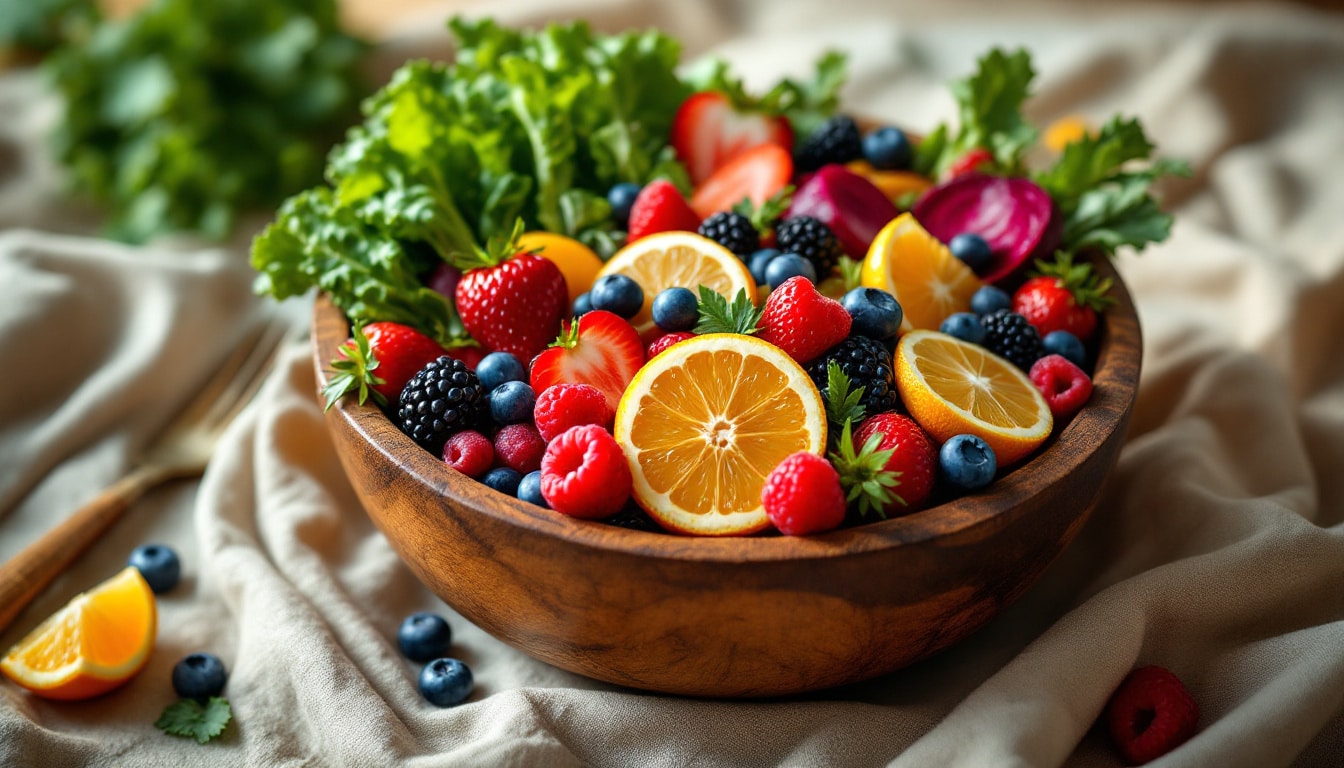Imagine a world where your body operates like a finely-tuned machine, effortlessly eliminating toxins while optimizing your health. Integrating natural detoxification into your diet is the key to rejuvenating not only your body but also your overall well-being. By embracing the power of whole, plant-based foods, you can enhance your body’s innate ability to cleanse itself, promoting vitality and longevity.
Detoxification is not just a buzzword; it’s a vital process that supports your body’s natural functions. From drinking abundant fluids to enjoying vibrant fruits and vegetables, each choice you make contributes to a healthier you. Incorporating practices like mindful eating and incorporating herbal teas can elevate your detox journey, creating harmony between your lifestyle and your body’s needs.
Furthermore, understanding which foods to avoid is equally essential for effective detoxification. By steering clear of processed items and embracing natural cleaners, you can aid your body immensely in its quest for balance. Together, let’s dive into actionable steps and delicious natural foods that can help transform your diet and enhance your detox efforts, leaving you feeling refreshed and revitalized every day!

The modern world is inundated with toxins, from the air we breathe to the food we consume and the products we use daily. As our body constantly strives to maintain equilibrium, integrating natural detoxification into our diet emerges as a vital strategy for enhancing health and wellbeing. By recognizing the significance of a detox-friendly diet, we can foster a lifestyle conducive to optimal health and longevity.
Table of Contents
ToggleThe Science Behind Natural Detoxification
To comprehend how natural detoxification operates, it’s crucial to understand the body’s innate ability to eliminate toxins. Our liver, kidneys, gut, and skin form a quick-response system to neutralize and expel harmful substances. A comprehensive study published by the National Center for Complementary and Integrative Health highlighted that the body adeptly handles the detoxification process without the need for extreme measures. Moreover, a review in 2020 found that enhancing these systems through dietary choices can lead to improved health outcomes.
By adopting a diet rich in specific nutrients, it’s possible not only to support our body’s natural detoxification processes but also to amplify their effectiveness. For instance, foods rich in antioxidants, such as berries, greens, and nuts, have demonstrated the ability to combat free radicals and promote cellular health. Including these foods in daily meals fosters a shield against the onslaught of environmental toxins.
Practical Strategies for a Detox-Friendly Diet
Incorporating detoxification into your dietary regimen need not be complicated. Here are some practical strategies, drawn from recent studies and expert recommendations, to help create a more detox-friendly diet:
1. Hydration is Key: The importance of staying well-hydrated cannot be overstated. Water aids in the transportation of nutrients throughout the body and facilitates the elimination of waste products. A simple recommendation is to aim for at least 8-10 glasses of water a day, or more if you’re active. Infusing your water with fresh fruits or herbs can make hydration more enjoyable and add beneficial nutrients.
2. Embrace Whole Foods: Transitioning to a plant-based diet can significantly enhance your body’s detoxification ability. Aim for a variety of whole foods, such as leafy greens, cruciferous vegetables, and legumes. These foods are rich in fiber, regulation of digestion, and support liver function. According to a study in the Journal of Nutrition, increased fiber intake has directly correlated with improved gut health and toxin clearance.
3. Periodic Fasting: Intermittent fasting has gained attention for its detoxification benefits. Engaging in periodic fasting periods grants the body a rest from continuous digesting, allowing it to focus on detoxification processes. Research has underscored that fasting not only rejuvenates cellular structures but also eliminates cellular waste effectively.
4. Include Detoxifying Foods: Certain foods exhibit properties that help the body eliminate toxins more effectively. For example, garlic is known for its sulfuric compounds that assist liver detoxification, while beets provide bioactive compounds that support the gallbladder function. Adding these foods into your diet can boost your detoxification efforts significantly.
5. Engage in Regular Exercise: Physical activity is an underrated aspect of detoxification. Engaging in regular exercise encourages the lymphatic system to function effectively and promotes sweating, another natural method of detoxification. An article in the American Journal of Public Health noted that even moderate activity yields substantial benefits in supporting overall detoxification mechanisms in the body.
6. Mindful Eating and Lifestyle Choices: Psychological health also ties in closely with the body’s ability to detoxify naturally. Observational studies indicate that stress greatly influences digestion and metabolism, which can hinder detoxification. Practicing mindful eating, where you focus on the flavors and textures of your food, can help reduce stress and enhance your relationship with food.
Innovative Perspectives on Detoxification
Understanding the implications of our lifestyle choices on detoxification enables us to approach our health proactively. Recent insights into gut health have opened new avenues for detoxification strategies. The gut microbiome significantly influences detoxification pathways, suggesting that supporting a healthy balance of gut bacteria is essential. Foods that promote gut health, like probiotics and fermented foods, encourage a detoxifying environment.
Furthermore, the concept of a digital detox has emerged as an innovative approach to cleansing not just the body but the mind too. Reducing screen time and exposure to digital devices can lower stress and improve overall wellbeing—a crucial component of effective detoxification.
Lastly, exploring breathing techniques has gained traction. Recent studies indicate that deep, conscious breathing can stimulate the parasympathetic nervous system, promoting optimal digestion and reducing stress levels, both of which are pivotal for effective detoxification.
In summary, integrating natural detoxification into your diet is a dynamic and multifaceted process that involves embracing whole foods, adopting a holistic lifestyle, and utilizing the body’s natural capabilities. By understanding the underlying mechanisms of detoxification and applying targeted strategies, you can pave the way toward enhanced health and vitality.
By following these recommendations, you’re not merely adhering to a detox program; you’re fostering a sustainable lifestyle that champions wellness, vibrancy, and longevity. With ongoing advances in research and growing awareness of health impacts, an informed approach to detoxification can empower you to take control of your health destination.

FAQ on Integrating Natural Detoxification into Your Diet
Q: What does natural detoxification mean? Natural detoxification refers to the body’s inherent ability to eliminate toxins through various processes, such as metabolism, digestion, and elimination, supported by healthy lifestyle choices.
Q: How can I incorporate detox-friendly foods into my diet? You can integrate detox-friendly foods by including fresh fruits and vegetables, whole grains, nuts, and seeds while reducing processed foods and sugars.
Q: Are there specific foods that promote detoxification? Yes, foods like leafy greens, berries, citrus fruits, garlic, and turmeric are known to aid the body’s detox processes.
Q: How important is hydration for detoxification? Hydration is crucial as it helps flush out toxins and ensures that your body’s detoxification processes function efficiently.
Q: Can physical activity enhance detoxification? Absolutely! Regular exercise supports circulation and lymphatic function, which are vital for toxin elimination.
Q: How does sleep affect detoxification? Quality sleep is essential as it allows the body to repair itself and facilitates processes that support detoxification.
Q: Should I avoid certain foods while detoxifying? It is advisable to limit or avoid processed foods, refined sugars, and excessive salt to enhance your detox efforts.
Q: How can I tell if I am successfully detoxifying? Signs of successful detoxification may include increased energy, better digestion, improved skin clarity, and enhanced overall well-being.
Q: Is intermittent fasting a good addition to my detox strategy? Yes, intermittent fasting can support detoxification by giving your digestive system a break and allowing the body to focus on cleansing.
Q: Are there any supplements that can assist with detoxification? Some supplements, like antioxidants and specific herbal extracts, may aid in the detox process, but it’s best to consult with a healthcare professional before starting any.





